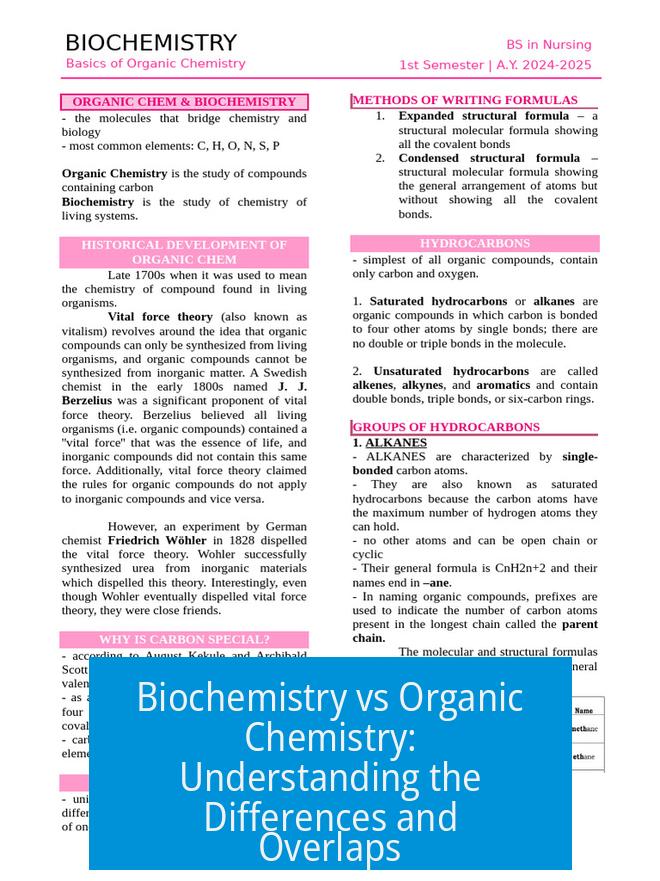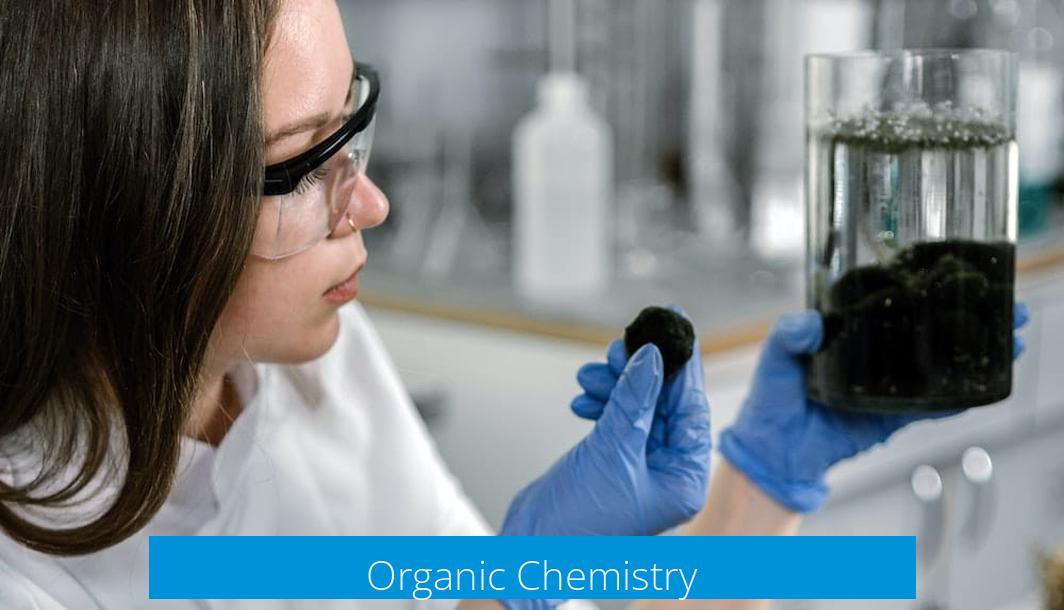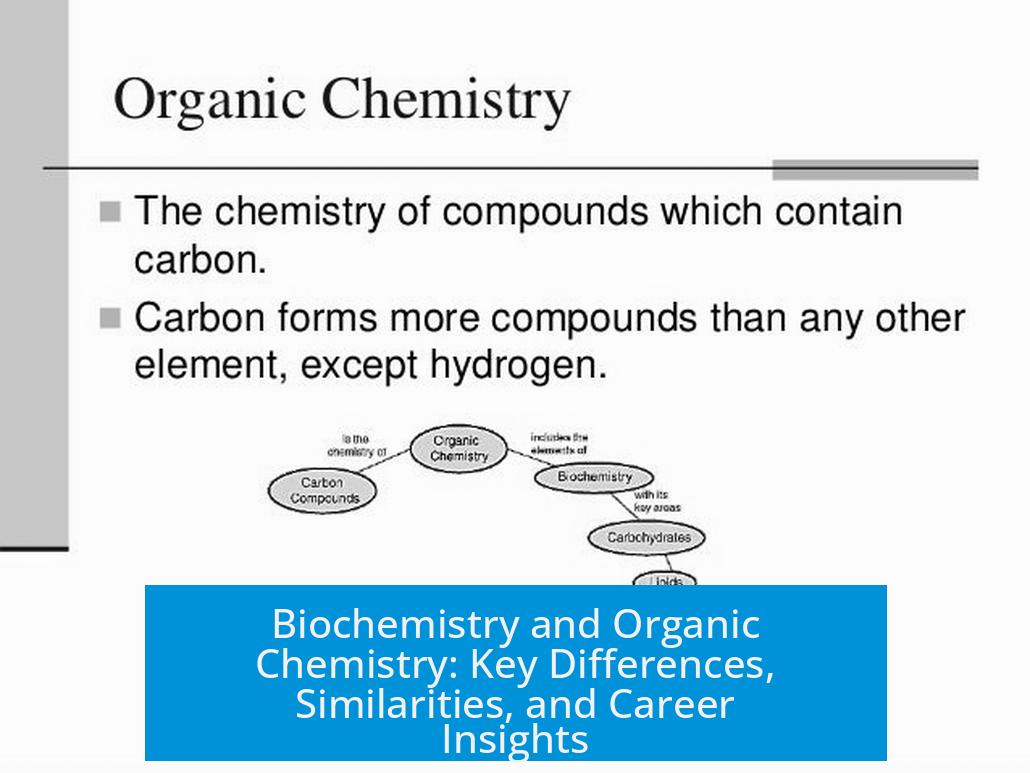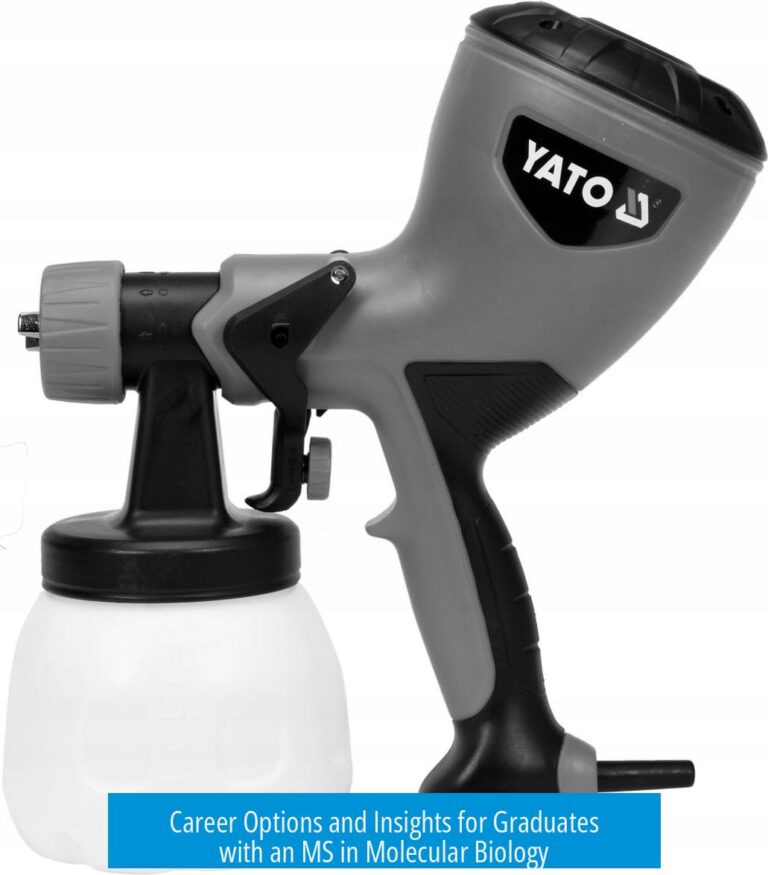Biochemistry vs Organic Chemistry: Understanding the Differences and Overlaps

Biochemistry and organic chemistry differ primarily in their focus: organic chemistry centers on designing and building complex carbon-based molecules, while biochemistry is concerned with how these molecules interact within living systems. This fundamental distinction influences their subject matter, methodologies, and applications in science and industry.
1. Focus and Emphasis
Organic Chemistry

Organic chemistry emphasizes the design, synthesis, and manipulation of carbon-based molecules. It investigates how molecules are constructed and explores methods to optimize or modify these synthetic processes. The key consideration is the molecular structure and the chemical pathways used to form these compounds.
Researchers study functional groups and reaction mechanisms, looking for efficient ways to build complex molecules that often mimic or enhance natural substances. The discipline prioritizes understanding the chemical process behind molecular assembly.
Biochemistry
Biochemistry focuses on the roles and functions of molecules within biological contexts. It studies how organic compounds, such as proteins, nucleic acids, and lipids, operate in cells and tissues. The primary interest lies in what these molecules do rather than how they are constructed.
This field investigates molecular interactions, enzyme functions, metabolic pathways, and signaling mechanisms. Biochemists explore how the structure of molecules influences biological activity and how molecular dynamics modulate life processes.
2. Subject Matter and Scope
Organic Chemistry
- Covers chemistry of carbon-based compounds, both natural and synthetic.
- Focuses on mechanisms and feasibility of syntheses.
- Examines physiochemical properties influenced by functional groups.
- Explores analog development for molecules to enhance or modify properties.
Organic chemists analyze reaction pathways and develop methods to build molecules in the lab. Their work often targets pharmaceutical, agricultural, and material science applications, designing molecules with desired properties.
Biochemistry
- Studies chemical processes inside living cells.
- Focuses on enzymology, metabolism, and cellular signaling.
- Investigates biological relevance of chemical reactions.
- Links molecular structure to biological function and health implications.
Biochemists dissect complex biological systems using chemical principles, aiming to understand metabolism, genetic regulation, and protein function within living organisms.
3. Areas of Overlap
Both fields intersect significantly, particularly in carbonyl chemistry, a common theme in enzymatic mechanisms and metabolic reactions. This overlap is most evident in bioorganic chemistry, which bridges organic chemistry and biology, focusing on carbon-based molecules within biological systems.
- Bioorganic chemistry adapts organic chemistry tools to study metabolic processes and enzyme functions.
- Organic chemists may design molecules that fit biological targets relevant to biochemists.
- Biochemists use organic chemistry knowledge to understand molecular transformations in the body.
Professors often identify as “Organic Biochemists,” reflecting research that combines molecular synthesis with biological application. Research labs in biochemistry may closely resemble organic chemistry labs due to shared experimental techniques.
4. Applications and Career Implications
The choice between pursuing biochemistry or organic chemistry depends largely on personal interest and career goals. Both fields contribute significantly to pharmaceutical sciences, especially in drug discovery and development.
- Organic chemistry skills apply to drug synthesis and molecular design.
- Biochemistry expertise aids understanding of drug interactions with biological targets.
- Pharmaceutical sciences integrate both disciplines, requiring knowledge of chemistry and biology.
Math demands in both fields remain moderate relative to other scientific disciplines. Students should evaluate their enthusiasm for chemical synthesis versus biological function before deciding their path.
5. Perspectives from Students and Educators
Students often observe biochemistry as an extension of organic chemistry aimed at improving life processes. For example, modifying seeds to enhance growth involves applying organic synthesis principles within biological systems.
Organic chemistry is perceived as more focused on laboratory work with organic compounds, exploring their properties and reactions in detail. Biochemistry, meanwhile, connects these chemical insights to biological behavior and cellular systems.
Educators describe blurred lines between the fields. Some biochemistry professors identify closely with organic chemistry, reflecting shared methodologies and research techniques. This interdisciplinary overlap enriches understanding and innovation within both fields.
Summary Table: Biochemistry vs Organic Chemistry
| Aspect | Organic Chemistry | Biochemistry |
|---|---|---|
| Primary Focus | Design and synthesis of carbon-based molecules | Function and interaction of molecules in living systems |
| Scope | Mechanistic study and optimization of molecular assembly | Metabolism, enzymology, signaling pathways inside cells |
| Key Topics | Functional groups, reaction mechanisms, synthetic feasibility | Enzymes, biological pathways, molecular function |
| Overlap | Carbonyl chemistry in enzymatic reactions, bioorganic chemistry | Use of organic synthesis knowledge for biological processes |
| Tools & Techniques | Lab synthesis, structural analysis, chemical reactions | Biochemical assays, enzyme kinetics, molecular biology techniques |
| Applications | Pharmaceutical design, material science, agriculture | Drug action, disease mechanisms, metabolic engineering |
Key Takeaways
- Organic chemistry specializes in building and modifying carbon-based molecules, focusing on the chemical processes involved.
- Biochemistry delves into how these molecules function and interact inside living organisms at a molecular level.
- The two fields overlap in areas like bioorganic chemistry, blending synthetic methods with biological applications.
- Career decisions should consider personal interest in synthesis versus biological function, as pharmaceutical sciences often combine both.
- Research environments and academic perspectives reveal significant interdisciplinary integration between biochemistry and organic chemistry.
What is the main difference in focus between biochemistry and organic chemistry?
Organic chemistry focuses on designing and building complex carbon-based molecules. Biochemistry studies how these molecules interact within living systems and what they do.
How do the subject scopes of biochemistry and organic chemistry differ?
Organic chemistry deals with carbon compounds’ synthesis, mechanisms, and properties. Biochemistry studies chemistry inside living cells, like enzymology and metabolism.
Is there overlap between biochemistry and organic chemistry?
Yes, especially in areas like carbonyl chemistry in enzymes. Bioorganic chemistry acts as a bridge between the two fields, focusing on carbon chemistry within biological systems.
How should I decide whether to pursue biochemistry or organic chemistry?
Enjoyment of the subject should guide your choice. Both fields have applications in areas like drug development, with some overlap in required knowledge.
Do biochemistry and organic chemistry require a lot of math?
Compared to other science fields, both require relatively little math. The focus is more on chemical processes and biological interactions.





Leave a Comment